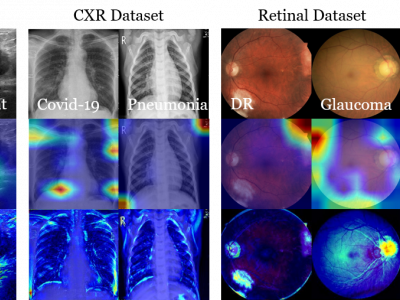Datasets & Competitions
Modern deep neural networks are overparameterized and thus require data augmentation techniques to prevent over-fitting and improve generalization ability. Generative adversarial networks (GANs) are famous for generating visually realistic images. However, the generated images lack diversity and have uncertain class labels. On the other hand, recent methods mix labels proportionally to the salient region.
- Categories:
 833 Views
833 Views